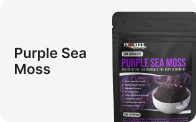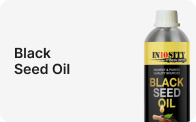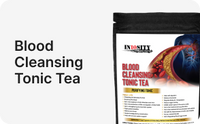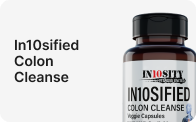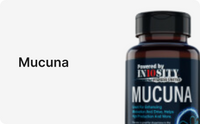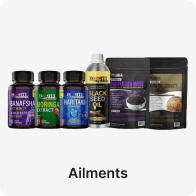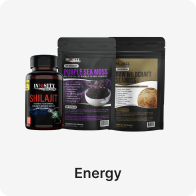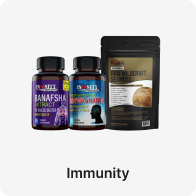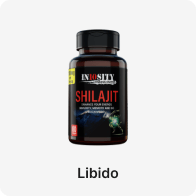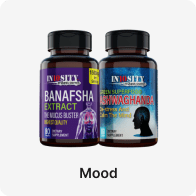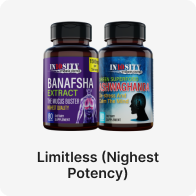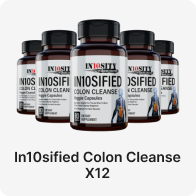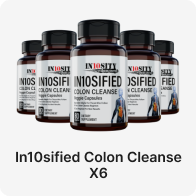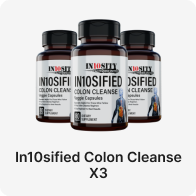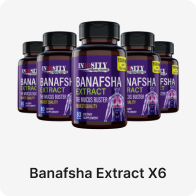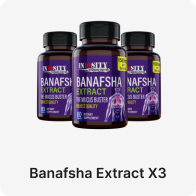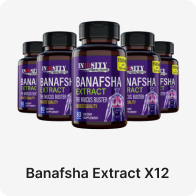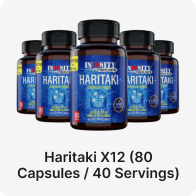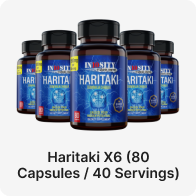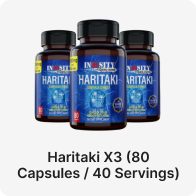How To Reduce Inflammation In The Body Fast
Do you suffer from inflammation? If so, you're not alone. Millions of people around the world deal with inflammation on a daily basis. While there are many different ways to treat and reduce chronic inflammation, not all of them are effective or safe. In this article, we will discuss 8 ways on how to reduce inflammation in the body fast!
Before discussing ways to reduce inflammation, it's important to understand what it is. Inflammation is the body's natural response to fight off infections. However, when inflammation becomes chronic, it can lead to several health problems, including heart disease, arthritis, and diabetes.
There are two types of inflammation: acute and chronic. Acute inflammation is short-lived and happens as a response to an injury or infection. Chronic inflammation, on the other hand, lasts for long periods and can be caused by things like obesity, stress, smoking, and certain autoimmune diseases.
While acute inflammation is an ordinary and necessary process, chronic inflammation can seriously affect your health. If you're dealing with chronic inflammation, it's essential to take steps to reduce it.

Below, we discuss five of the most common causes of inflammation:
One of the most common causes of inflammation is obesity. When you are obese, your body is constantly under stress, and this can lead to inflammation. In addition, obese individuals tend to have higher levels of inflammatory markers in their blood.
Another common cause of inflammation is stress. When you're stressed, your body releases hormones that can trigger an inflammatory response. In addition, stress can make existing inflammation worse.
Smoking is a major cause of inflammation. Cigarette smoke contains hundreds of chemicals that can damage cells and lead to inflammation. In addition, smoking increases your risk of developing autoimmune diseases like lupus and rheumatoid arthritis, both of which are characterized by chronic inflammation.
Food can also cause inflammation. For example, processed foods and refined sugars are known to promote inflammation. In addition, some people may be sensitive to certain foods that can trigger an inflammatory response. Common trigger foods include gluten, dairy, and nightshade vegetables like tomatoes and potatoes.
Finally, autoimmune diseases like lupus and rheumatoid arthritis are characterized by chronic inflammation. These conditions occur when your immune system attacks healthy tissue in your body by mistake. As a result, inflammation becomes a constant presence in the affected individual's life.
There are a number of different signs that you may be experiencing inflammation. These signs include:

There are many different ways to decrease inflammation in the body, but not all of them are effective or safe. In this section, we will discuss 8 ways to reduce inflammation in your body fast!
Polyphenols are antioxidants found in plants with anti-inflammatory effects crucial to fighting chronic inflammation. The good news is that polyphenol-containing foods are everywhere, from fruits and vegetables to nuts, seeds, and even wine.
A colorful diet of whole foods is the best way to ensure you're eating anti-inflammatory foods and getting various nutrients that can help support your immune system. These foods include broccoli, apples, blueberries, onions, lemons, pistachios, almonds, cabbage, and blackberries, to name a few.
Another way to incorporate anti-inflammatory properties into your diet is through herbs and spices. Use them to doctor up your recipes and reap the benefits of added nutrients.
Exercise is a powerful way to reduce inflammation. It does this by helping to regulate the immune system, improving blood sugar control, and reducing stress levels. In one study, overweight and obese adults who exercised regularly had lower levels of inflammatory markers than those who didn't exercise.
Even moderate-intensity activity like walking can help reduce inflammation. So get moving! A little exercise goes a long way in the fight against chronic inflammation. Start slowly if you're not used to being active, and gradually increase your intensity and duration as you become more fit.
And be sure to talk to your doctor before starting any new exercise routine. If you have joint pain or stiffness, water-based activities may be a good option for you.

Sleep is important for overall health, and that includes reducing inflammation. A lack of sleep can increase inflammatory markers in the body. In one study, adults who slept less than six hours per night had higher levels of C-reactive protein (CRP), a marker of inflammation, than those who slept more than seven hours.
To promote better sleep and reduce inflammation, aim to go to bed and wake up at the same time each day. Establish a relaxing bedtime routine that includes winding down for 30 minutes before you turn off the lights. And make sure your bedroom is dark, quiet, and cool — around 65 degrees Fahrenheit is ideal. Also, avoid using electronic devices in the hour leading up to sleep since the blue light they emit can interfere with your body's natural sleep rhythm.
Stress can take a toll on your body and mind, and it can also contribute to chronic inflammation. When you're stressed, your body releases hormones like cortisol that can increase inflammatory markers.
Fortunately, there are many different ways to manage stress. Exercise, meditation, and spending time in nature are all great options. You may also want to try relaxation techniques like deep breathing or progressive muscle relaxation. Find what works for you and make it a part of your daily routine. Reducing stress will help decrease chronic inflammation and improve your overall health.
Fasting is a practice that has been used for centuries to promote healing and wellness. It involves abstaining from food and drinks for a set period of time. Fasting can help reduce inflammation by giving the digestive system a break and allowing the body to focus on repair and regeneration.
Intermittent fasting, which is periods of fasting followed by periods of eating, is a popular type of fasting that can be used to reduce inflammation.
There are many different ways to do it, but one common method is to fast for 16 hours and eat only during an eight-hour window. This can be done daily or a few times per week.
Smoking is a major risk factor for chronic inflammation. In fact, smokers have been found to have higher levels of inflammatory markers than non-smokers. If you smoke, quitting is one of the best things you can do for your health.
Processed foods are high in sugar, unhealthy fats, and calories, and they can contribute to chronic inflammation. These foods include cookies, cakes, chips, crackers, and processed meats. If you want to reduce inflammation, it's best to avoid or limit these foods as much as possible.
Instead, focus on eating whole foods that are packed with nutrients and anti-inflammatory properties. These include fruits, vegetables, nuts, seeds, whole grains, and healthy fats like olive oil. By filling your diet with nutrient-rich foods, you'll help reduce inflammation and improve your overall health.

Natural supplements can be a great way to reduce inflammation. Below, we discuss some of the best options:
Maca root: Maca is a powder made from the root of a plant that grows in Peru. It's rich in nutrients and has been shown to reduce inflammation.
Sea moss: Sea moss is high in vitamins A, C, and E, which have been shown to help reduce inflammation. Sea moss also contains anti-inflammatory qualities that can help to prevent chronic illness.
Banafsha: Banafsha is an herb that has been used in traditional medicine for centuries. It's thought to be a natural anti-inflammatory agent and can be found in supplements or teas.
Black seed oil: Black seed oil is made from the seeds of the Nigella sativa plant. It's high in antioxidants and has been shown to reduce inflammation.
Moringa: Moringa is a plant that's native to Africa and Asia. It's high in vitamins A, C, and E, as well as antioxidants. These nutrients can help reduce inflammation throughout the body.
Colloidal Silver: Colloidal silver is a solution that contains silver particles. It's thought to have anti-inflammatory and antibacterial properties.
If you're looking for natural supplements to help reduce inflammation, shop from us! We offer a wide range of products that are designed to support optimal health. Visit our store today to learn more.
Inflammation is a normal response by your body to protect itself from harm. However, chronic inflammation can lead to a variety of health problems.
Fortunately, there are many different ways to reduce inflammation. These include exercise, stress management, quitting smoking, and eating a healthy diet. Natural supplements can also be a great way to reduce inflammation.
What other strategies do you use to reduce inflammation? Share them in the comments below!
What Is Inflammation?
Before discussing ways to reduce inflammation, it's important to understand what it is. Inflammation is the body's natural response to fight off infections. However, when inflammation becomes chronic, it can lead to several health problems, including heart disease, arthritis, and diabetes.
There are two types of inflammation: acute and chronic. Acute inflammation is short-lived and happens as a response to an injury or infection. Chronic inflammation, on the other hand, lasts for long periods and can be caused by things like obesity, stress, smoking, and certain autoimmune diseases.
While acute inflammation is an ordinary and necessary process, chronic inflammation can seriously affect your health. If you're dealing with chronic inflammation, it's essential to take steps to reduce it.
5 Causes Of Inflammation

Below, we discuss five of the most common causes of inflammation:
Obesity
One of the most common causes of inflammation is obesity. When you are obese, your body is constantly under stress, and this can lead to inflammation. In addition, obese individuals tend to have higher levels of inflammatory markers in their blood.
Stress
Another common cause of inflammation is stress. When you're stressed, your body releases hormones that can trigger an inflammatory response. In addition, stress can make existing inflammation worse.
Smoking
Smoking is a major cause of inflammation. Cigarette smoke contains hundreds of chemicals that can damage cells and lead to inflammation. In addition, smoking increases your risk of developing autoimmune diseases like lupus and rheumatoid arthritis, both of which are characterized by chronic inflammation.
Inflammatory Foods
Food can also cause inflammation. For example, processed foods and refined sugars are known to promote inflammation. In addition, some people may be sensitive to certain foods that can trigger an inflammatory response. Common trigger foods include gluten, dairy, and nightshade vegetables like tomatoes and potatoes.
Autoimmune Diseases
Finally, autoimmune diseases like lupus and rheumatoid arthritis are characterized by chronic inflammation. These conditions occur when your immune system attacks healthy tissue in your body by mistake. As a result, inflammation becomes a constant presence in the affected individual's life.
Signs Of Inflammation In The Body
There are a number of different signs that you may be experiencing inflammation. These signs include:
- Joint pain
- Chronic pain
- Stiffness
- Redness
- Swelling
- Heat
- Fatigue
How To Reduce Inflammation In The Body Fast

There are many different ways to decrease inflammation in the body, but not all of them are effective or safe. In this section, we will discuss 8 ways to reduce inflammation in your body fast!
1. Adopt An Anti-Inflammatory Diet
Polyphenols are antioxidants found in plants with anti-inflammatory effects crucial to fighting chronic inflammation. The good news is that polyphenol-containing foods are everywhere, from fruits and vegetables to nuts, seeds, and even wine.
A colorful diet of whole foods is the best way to ensure you're eating anti-inflammatory foods and getting various nutrients that can help support your immune system. These foods include broccoli, apples, blueberries, onions, lemons, pistachios, almonds, cabbage, and blackberries, to name a few.
Another way to incorporate anti-inflammatory properties into your diet is through herbs and spices. Use them to doctor up your recipes and reap the benefits of added nutrients.
2. Exercise
Exercise is a powerful way to reduce inflammation. It does this by helping to regulate the immune system, improving blood sugar control, and reducing stress levels. In one study, overweight and obese adults who exercised regularly had lower levels of inflammatory markers than those who didn't exercise.
Even moderate-intensity activity like walking can help reduce inflammation. So get moving! A little exercise goes a long way in the fight against chronic inflammation. Start slowly if you're not used to being active, and gradually increase your intensity and duration as you become more fit.
And be sure to talk to your doctor before starting any new exercise routine. If you have joint pain or stiffness, water-based activities may be a good option for you.
3. Get Enough Sleep

Sleep is important for overall health, and that includes reducing inflammation. A lack of sleep can increase inflammatory markers in the body. In one study, adults who slept less than six hours per night had higher levels of C-reactive protein (CRP), a marker of inflammation, than those who slept more than seven hours.
To promote better sleep and reduce inflammation, aim to go to bed and wake up at the same time each day. Establish a relaxing bedtime routine that includes winding down for 30 minutes before you turn off the lights. And make sure your bedroom is dark, quiet, and cool — around 65 degrees Fahrenheit is ideal. Also, avoid using electronic devices in the hour leading up to sleep since the blue light they emit can interfere with your body's natural sleep rhythm.
4. Manage Stress
Stress can take a toll on your body and mind, and it can also contribute to chronic inflammation. When you're stressed, your body releases hormones like cortisol that can increase inflammatory markers.
Fortunately, there are many different ways to manage stress. Exercise, meditation, and spending time in nature are all great options. You may also want to try relaxation techniques like deep breathing or progressive muscle relaxation. Find what works for you and make it a part of your daily routine. Reducing stress will help decrease chronic inflammation and improve your overall health.
5. Consider Fasting
Fasting is a practice that has been used for centuries to promote healing and wellness. It involves abstaining from food and drinks for a set period of time. Fasting can help reduce inflammation by giving the digestive system a break and allowing the body to focus on repair and regeneration.
Intermittent fasting, which is periods of fasting followed by periods of eating, is a popular type of fasting that can be used to reduce inflammation.
There are many different ways to do it, but one common method is to fast for 16 hours and eat only during an eight-hour window. This can be done daily or a few times per week.
6. Quit Smoking
Smoking is a major risk factor for chronic inflammation. In fact, smokers have been found to have higher levels of inflammatory markers than non-smokers. If you smoke, quitting is one of the best things you can do for your health.
7. Avoid Processed foods
Processed foods are high in sugar, unhealthy fats, and calories, and they can contribute to chronic inflammation. These foods include cookies, cakes, chips, crackers, and processed meats. If you want to reduce inflammation, it's best to avoid or limit these foods as much as possible.
Instead, focus on eating whole foods that are packed with nutrients and anti-inflammatory properties. These include fruits, vegetables, nuts, seeds, whole grains, and healthy fats like olive oil. By filling your diet with nutrient-rich foods, you'll help reduce inflammation and improve your overall health.
8. Use Natural Supplements

Natural supplements can be a great way to reduce inflammation. Below, we discuss some of the best options:
Maca root: Maca is a powder made from the root of a plant that grows in Peru. It's rich in nutrients and has been shown to reduce inflammation.
Sea moss: Sea moss is high in vitamins A, C, and E, which have been shown to help reduce inflammation. Sea moss also contains anti-inflammatory qualities that can help to prevent chronic illness.
Banafsha: Banafsha is an herb that has been used in traditional medicine for centuries. It's thought to be a natural anti-inflammatory agent and can be found in supplements or teas.
Black seed oil: Black seed oil is made from the seeds of the Nigella sativa plant. It's high in antioxidants and has been shown to reduce inflammation.
Moringa: Moringa is a plant that's native to Africa and Asia. It's high in vitamins A, C, and E, as well as antioxidants. These nutrients can help reduce inflammation throughout the body.
Colloidal Silver: Colloidal silver is a solution that contains silver particles. It's thought to have anti-inflammatory and antibacterial properties.
Need Natural Supplements That Help Reduce Inflammation?
If you're looking for natural supplements to help reduce inflammation, shop from us! We offer a wide range of products that are designed to support optimal health. Visit our store today to learn more.
The Bottom Line
Inflammation is a normal response by your body to protect itself from harm. However, chronic inflammation can lead to a variety of health problems.
Fortunately, there are many different ways to reduce inflammation. These include exercise, stress management, quitting smoking, and eating a healthy diet. Natural supplements can also be a great way to reduce inflammation.
What other strategies do you use to reduce inflammation? Share them in the comments below!



